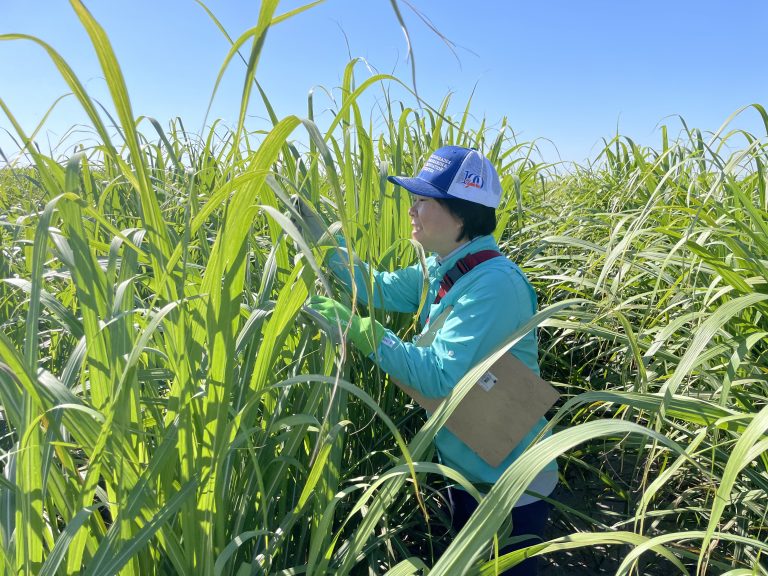Behind every fresh head of lettuce and pepper on your plate, there’s a team of scientists working tirelessly to protect crops and farmers’ harvests from pests and plant diseases.

Photo by Juan Sebastian Angel-Salazar / UF/IFAS
De-Fen Mou, an assistant professor of entomology at the UF/IFAS Everglades Research and Education Center (EREC) in Belle Glade, is one of the key researchers on the front lines, safeguarding Florida’s food supply and supporting the farmers who grow the produce consumers purchase at grocery stores and markets.
As the lead scientist in EREC’s Agricultural Vector Entomology Lab, Mou specializes in two types of tiny but impactful insects, hemipteran and thysanopteran pests, which can damage crops directly and can also transmit harmful plant viruses.
“My research helps growers maintain resilience and productivity, ensuring a stable supply of fresh produce for consumers,” said Mou. “Palm Beach County is known as the ‘winter vegetable capital of the United States,’ so it’s critical that we stay ahead of emerging pest threats.”
Hemipterans
Hemipterans include aphids, leafhoppers, planthoppers and whiteflies, all of which have long, straw-like mouthparts they use to drink plant sap. If a plant is infected with a virus, these insects can get sick when feeding and potentially transmit the virus to other plants.
Thysanopterans
Thysanopterans, more commonly known as thrips, differ in that they scrape the plant surface first and then suck out the plant cell contents, depleting the plant of nutrients and limiting the harvest. Some species of thrips can also transmit plant viruses.
“Because these groups of insects are often very small, they are difficult to observe with the naked eye, yet they can feed on and cause severe damage to a wide range of crops, including lettuce, pepper, sugarcane and rice,” said Mou.
Current Research
One of Mou’s current projects is protecting vegetable crops from the invasive Thrips parvispinus. This pest has caused significant damage to crops like peppers, cucumbers and squash, leading to millions of dollars in losses. Mou and a team of scientists are studying how these insects choose their host plants and are testing different management practices to find the most effective way to control them. She’s tracking how these pests spread, how they affect the plants and whether certain types of peppers are more resistant to them.
“By understanding the pest’s behavior and finding the best treatments, we aim to help farmers protect their crops and reduce economic losses,” she said.
Mou closely collaborates with growers, UF/IFAS researchers and extension agents to provide real-time, research-based solutions.
“When Thrips parvispinus emerged as a major pest, our team responded immediately by monitoring its host range, assessing population levels and evaluating insecticide efficacy,” she explained. “Through this collaborative approach, we provide growers with timely, research-based management strategies to combat this pest effectively.”
To showcase this dedication to the agricultural community, growers and reporters are invited to join Mou and the EREC faculty and students for an interactive field day themed “Growing Together Toward Sustainability.” Registration is required for the day’s events at 3200 East Canal St. South in Belle Glade that will include facility tours and highlights of current research projects throughout the grounds.









